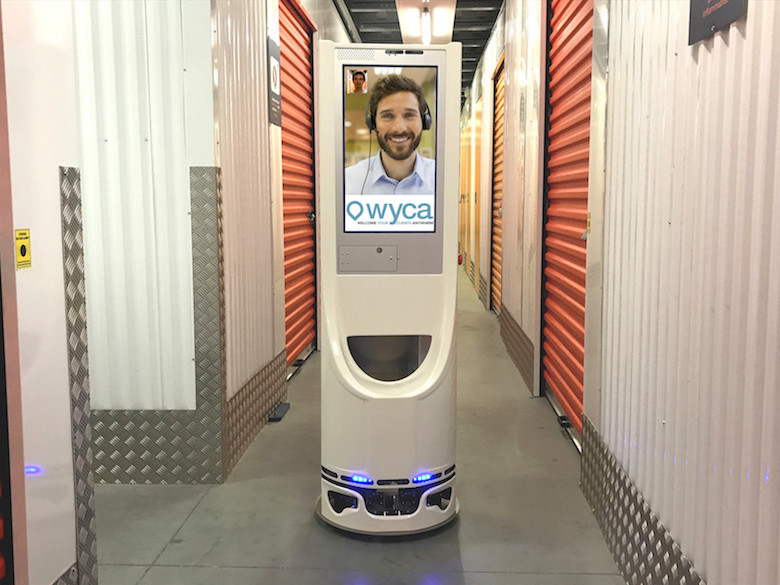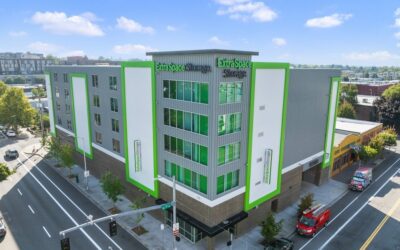Matthieu Besozzi faced a dilemma.
One of his two self-storage facilities in Toulouse, France, was too small to justify the cost of hiring a manager. So he and his colleagues decided to operate the 10,000-square-foot facility remotely, without any staff.
However, managing a facility remotely demands regular on-site visits to handle day-to-day tasks, such as checking on a property’s cleanliness and security.
The solution? Besozzi and his colleagues developed their own self-storage robot.
Today, six Keylo robots are being used by self-storage facilities in France, the Netherlands and Switzerland, with another 14 robot deployments in Europe scheduled for the remainder of 2017.
And if all goes as planned, Keylo robots soon will be roaming self-storage facilities in the U.S.

Wyca Robotics is looking for the first U.S. facility to use its Keylo robot for unmanned operations.
The robots are coming
Besozzi said the French robot company he co-founded, Wyra Robotics, and Phoenix-based OpenTech Alliance, a provider of self-storage technology and services, are negotiating with several self-storage operators to establish Keylo’s first test site in the U.S. OpenTech, Wyra’s U.S. distributor, demonstrated the robot in April at the Inside Self Storage World Expo.
“We are willing to make a great deal for the self-storage operator that commits to being the first robot owner in the U.S.,” says Robert Chiti, president and CEO of OpenTech.
In the U.S., just as in Europe, Besozzi envisions a self-storage facility employing a Keylo robot for remote management or to supplement on-site staff.
For instance, a robot can connect a prospective customer with a human off-site manager to arrange for rental of a unit. Then, the robot can escort the customer to a suitable unit while the off-site manager maintains two-way video and audio communication. If the customer likes the unit, the lease can be signed on the robot’s digital screen and a lock can be dispensed.
Aside from the more practical benefits, the robot is “a great way to market a high-end property,” Besozzi says.
Cutting labor costs
It’s also apparently a great way to cut expenses. Swiss self-storage operator Zebrabox reports that using the Keylo robot reduces by two-thirds the staffing costs of a 20,000-square-foot facility that it manages remotely. A human presence is still required at the facility, but much less often than if the robot weren’t there, according to Besozzi.
“U.S. owners are developing a lot of unmanned facilities. The main challenge of this kind of project is to ensure a high quality of service,” he says. “We believe that robotics is the answer to this pain point.”
However, robotic technology doesn’t wipe out the need for the human touch in self-storage, Besozzi says.
“We believe that humans should focus on productive tasks. Paying somebody to drive from one site to another one is useless today,” he says. “Receiving a lead, leasing a unit or doing the basic tasks of property management using a robot saves time and money.”
Pioneering technology
Chiti says he doubts robots will entirely replace facility employees during his lifetime. However, he believes they will become a key fixture at self-storage facilities.
“While robots may be new to our industry, we feel they are going to play an integral part in operating an indoor self-storage facility in the future, so we are investing in pioneering this new technology for the industry,” Chiti says. “We feel the value-add of a robot will increase significantly as we integrate it with our call center, kiosks and access control system.”
This pioneering technology does come at a price, though. Each Keylo robot sells for $24,000, excluding the shipping and setup expenses. On top of that, a $250-a-month service fee is charged.
“We expect the price to come down as we start to mass-produce them,” Chiti says. “For now, the robot is for the people that can afford to be on the cutting edge in the storage industry.”







